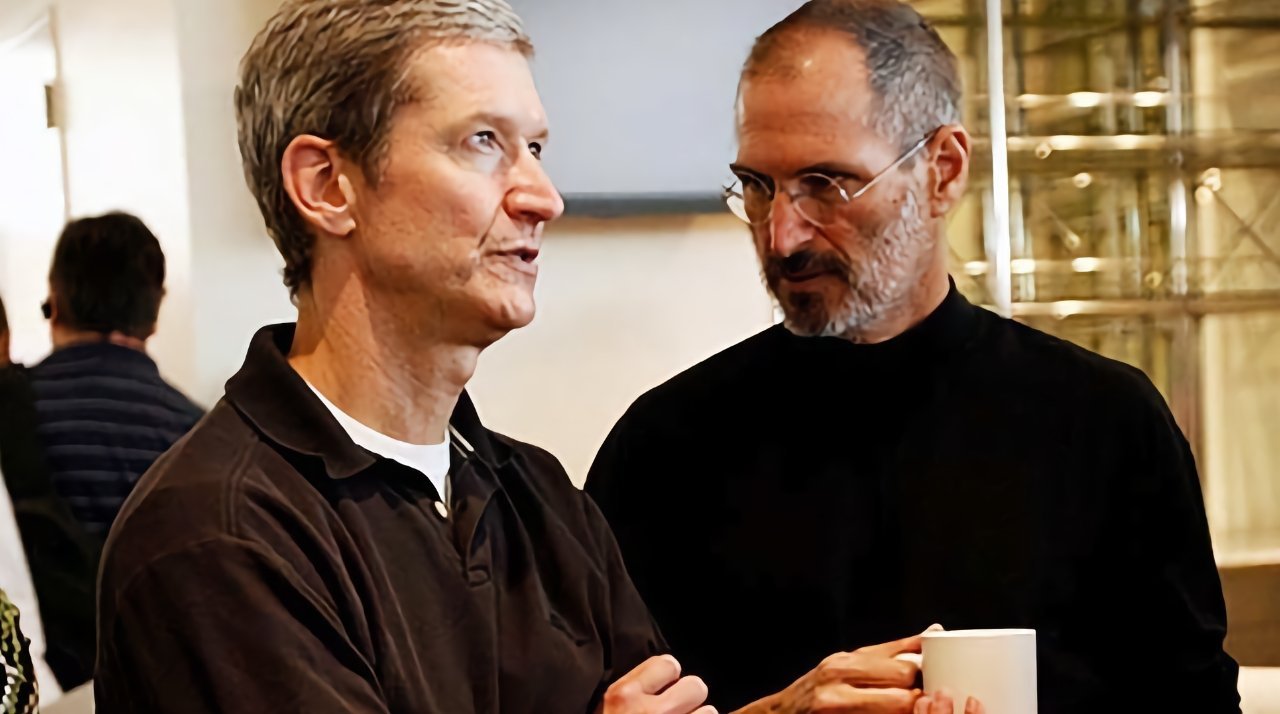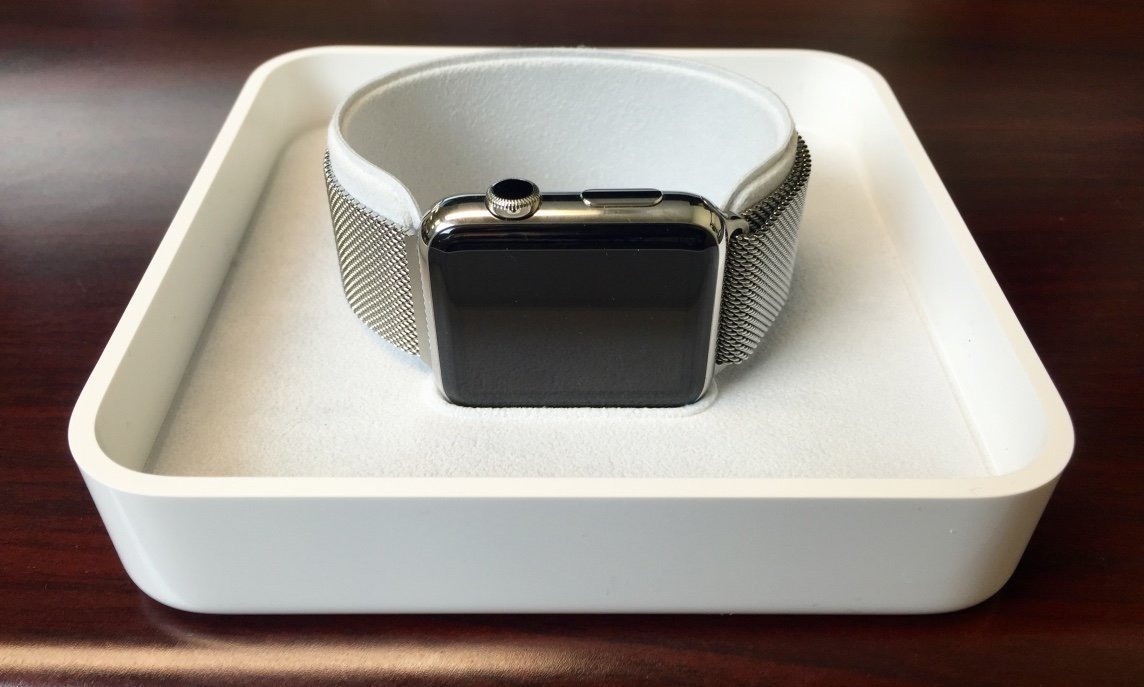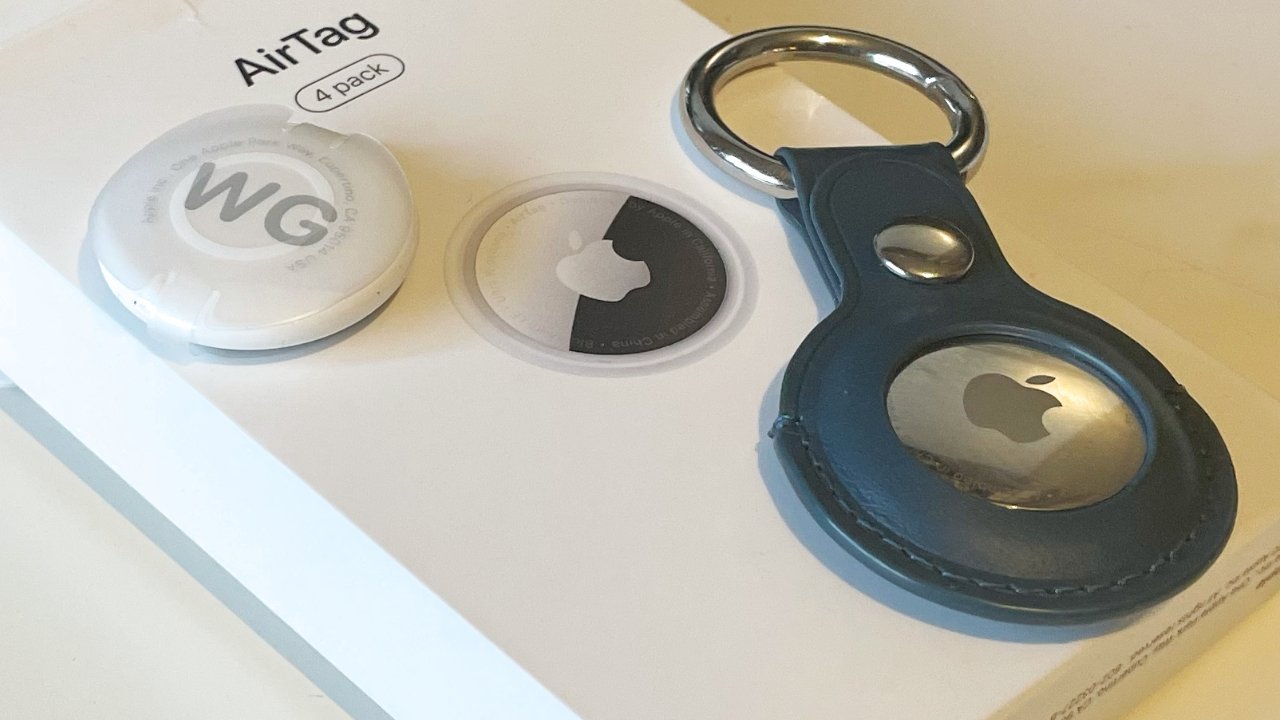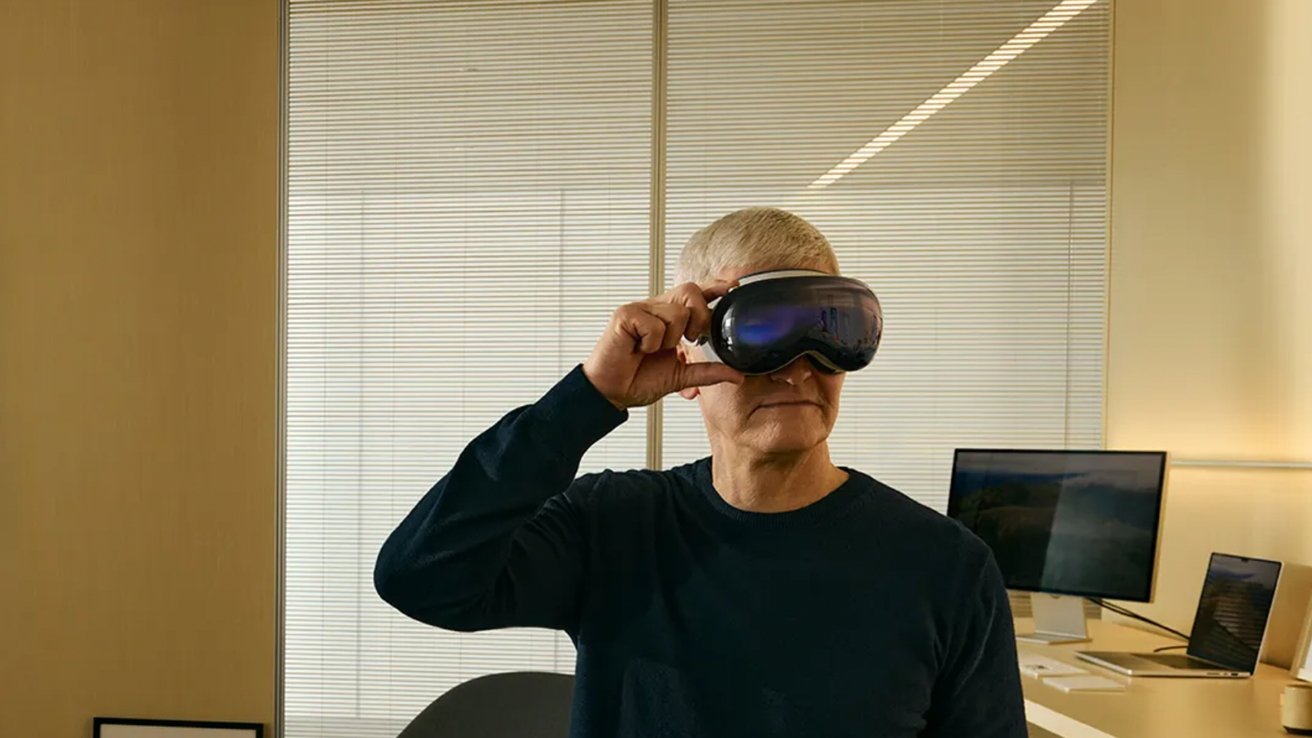Tim Cook has constantly been criticized, most recently over Apple Intelligence, but always for just not being Steve Jobs — yet the fact that he isn’t Jobs is what has made Apple the technological and financial juggernaut it is today.
There was criticism right back at the start in 2011, when Tim Cook was no longer the temporary stand-in for Steve Jobs, but was getting the CEO job permanently. Today there’s criticism of Cook over how Apple Intelligence has seemingly stumbled.
And in between, say around 2018, there was criticism for the now forgotten weak sales of the HomePod. Plus before even then, the Apple Watch was branded a failure, it was called a device without a point.
No living CEO of any company is universally praised, and it took Steve Jobs’s passing until he was truly beloved. But then after his death, it was revealed that Jobs didn’t think his replacement was a product person, and it’s not as if Cook could exactly argue.
Cook’s tenure at Apple has seen the launch of a slew of products that now help define the company. He’s spread the company wider, predicting that services would become crucial.
And he’s also taken Apple first to a $1 trillion valuation — and then to a $3 trillion one. In both cases, it was the world’s first company to reach those milestones.
Yet after the first one, Cook took time to repeat the kind of argument that Jobs had often made before. Jobs would claim to not think about money, and trust that if you do good work, the results follow.
“Financial returns are simply the result of Apple’s innovation, putting our products and customers first, and always staying true to our values,” Cook wrote in a memo to staff about Apple reaching $1 trillion.

Tim Cook (left) with Steve Jobs — image credit: Apple
“Steve [Jobs] founded Apple on the belief that the power of human creativity can solve even the biggest challenges — and that the people who are crazy enough to think they can change the world are the ones who do,” Cook continued. “Just as Steve always did in moments like this, we should all look forward to Apple’s bright future and the great work we’ll do together.”
Financial success gives Apple an edge
Money isn’t everything, but it’s a lot. Apple has grown so much under Cook’s aegis that it’s actually hard to definitively say, for instance, what your shares would be worth if you’d bought $1,000 of them on the day he took over.
However, if you ignore additional money from the dividends Apple has paid shareholders over the years, you can get one measure of the company’s growth. A $1,000 investment in 2011 would now be worth around $18,500.
That’s nice for shareholders, and the board. It’s also a very clear sign that Cook will never be forced out.
It’s also’s Cook’s financial acumen that has put the company where it is now. It’s because it has this money that it could scrap the decade-long Apple Car project. That money wasn’t thrown away, it was spent on material science, on computer vision, and so forth.
And all that will be, and has been, used in other Apple products. That cash reserve is how Apple can play a long game and profit from that Apple Car research, despite it being a cancelled project.
It’s because it has this cash and such a strong financial base that Apple can out-wait any rival over any issue. This is also why Apple is then able to repeatedly be late to a market, yet then totally own it.
Apple thinks of what technology can be used for, and how it can be used, rather than creating technology first and trying to find users. So by the time it enters a market, it has spent years thinking about it while other firms have become entrenched in whatever their first idea was.
Consequently, Jobs may well have meant it when he kept saying that money wasn’t the focus. It is money that enables Apple to focus.
Plus, never forget that right back at the start of Apple, it was Steve Wozniak who wanted to give away his blueprints at the Homebrew Computer Club — and Jobs who insisted on selling them.
So Jobs was far from unconcerned with money, and far from being willing to let some potential profit go.
Steve Jobs is not turning in his grave
Still, you can, and folks critical of Cook repeatedly do, make any point you like about Apple and then add that Jobs is turning in his grave. Steve Jobs would never have done this or that. Steve Jobs would never have had a failure like Apple Intelligence, and so on.
That he did have, say, Antennagate, but the truth is that no one does and no one can say what Jobs would or wouldn’t have done.
You can compare, say, his response to the iPhone 4’s antenna problems to Tim Cook’s reaction to the poor launch of Apple Maps. And you could make some parallels between how Jobs dealt with the failure of Mobile Me to how Cook now appears to be dealing with Apple Intelligence.
And Jobs had his other failures too. The predecessor to the Mac, the Lisa, was a spectacular one.
But yet, Apple waited.
Anyway, you cannot predict anyone, and it is impossible to even really guess how Steve Jobs would be acting if he were facing today’s issues given that he has been gone for over a decade. You cannot predict, nobody can, how he’d manage a company that has grown at least eight times in market capitalization, but actually more, given stock buybacks and so forth.
Saying “Steve Jobs would never” or similar permutation is a logical fallacy. The argument is almost always used by somebody who personally disagrees with Cook’s approach to something.
According to then-Apple board member Al Gore, Steve Jobs himself said no one at the company should ever ask “what would Steve had done?”
Because, simply, nobody knows. Not even those closest to him.
And don’t forget — Cook was hand-picked by Jobs. Cook is literally the man that Jobs wanted running the company after he was gone.
Moving on from Steve Jobs
Whether under Jobs or Cook, Apple only rarely looks back at its past, at least publicly. But it does now routinely make an exception for Steve Jobs. Cook puts out statements on every anniversary of Jobs’s death, and on his birthday.

An original Apple Watch from 2015
Then together with Laurene Powell Jobs and Jony Ive, Cook helped launch the Steve Jobs Archive in 2022.
But if people criticize Cook now, they tend to do it by saying Apple would or wouldn’t have done something if Jobs were still alive. Or they say that really Apple is coasting on the success that Jobs created.
What that really means is that Apple launched the iPhone on Jobs’s watch and nothing since then has come close to its success. That’s fair — and also unfair, since the iPhone is the single biggest selling product of any kind, in the world. Ever.
And if nothing can match the iPhone’s sales numbers, Apple under Tim Cook has regularly equalled that device’s success in terms of ubiquity. Despite being so often called a failure, there is simply no smartwatch that rivals the Apple Watch, which Cook announced in 2014.
That wasn’t the first smart watch in the world, just as the iPhone was far from the first smartphone. In both cases, though, Apple’s device became the one to beat.
And it was the same with AirPods. While Apple wasn’t the first to produce wireless earbuds and today there are many competitors, but AirPods set the standard.

Left: an unactivated AirTag. Right: an activated one in an accessory
So did AirTags. Yet again, there were trackers like it before, but now AirTags is the common term for all of them, and now they are a global hit.
Only the HomePod, Apple Pencil, and Apple Vision Pro have failed to become ubiquitous. But while no figures, or even really recent estimates, are available, you know that their sales would surely sustain most small companies.
And you suspect that right now, Sonos would like to have the HomePod’s sales for its audio devices.
The products keep coming
Then there have been significant developments of devices that originated under Steve Jobs’s watch — such as the iPad Pro. There is an argument that it is only in 2025 with iPadOS 26 that the iPad Pro truly became a pro device, but tell that to the artists who’ve been using since it launched in 2015.
The long-standing criticism of the iPad Pro was that the hardware was vastly more powerful than the software. But key to this claim is how Apple pushed ahead with making an ever-more powerful tablet.
And that ties in to one more thing that Cook has done for Apple which was and is revolutionary. He moved Apple on from Intel to its own Apple Silicon processors, and the difference for the Mac has been transformative.
Curiously, though, this is perhaps the single area where a direct comparison can be made between Tim Cook and Steve Jobs. They both pulled off an immensely complex move of processors — with Jobs taking Apple from PowerPC to Intel — and both did it so well that it’s easy to forget what a task it was.
In this one case, Tim Cook appeared to follow Steve Jobs’s playbook to the letter, sometimes even using the same words in presentations.
It’s a new world
If Cook is still believed to not a product person in the way that Jobs or Jony Ive would obsess over them, he is said to claim that he uses every product, every day. Steve Jobs famously cut Apple down to four main products, but under Cook the firm has ballooned.
There was no Apple TV+ under Jobs, for instance. Nor Apple Music, nor Apple Arcade, Apple News, and definitely not films in movie theaters.
And if Cook oversees so many products that he cannot truly obsess about them all, there have been reports that he obsesses about one of them. In early 2025, an anonymous source claimed that Cook “cares about nothing” except the Apple Vision Pro, and more recently the company is said to have seven devices in the works.

Tim Cook dons the Apple Vision Pro | Credit: Vanity Fair
Cook sees a world in which spatial computing is everywhere. But then Cook is also working in a world now that requires him to be something that his predecessor could chiefly afford to ignore.
Tim Cook is a politician.
That does now include all of his dealings with Trump — both successful and unfortunately also not — plus he will lend his voice to lobbying officials.
But it’s also visible in his interviews. Whether he’s criticized, or it’s put to him that Apple is doing something wrong, he has a very well-crafted phrase that he leans on.
“The way I see it…” he’ll begin, before presenting how Apple would like its actions to be perceived. It’s such a short phrase, but it’s armed — he won’t disagree with you, won’t challenge you, will just so very reasonably present an alternative and make it sound personal.
Cook is usually said to be reasonable and calm and even unflustered. There has been evidence that Cook isn’t so calm as to be a pushover, though.
And there has been evidence that he doesn’t follow Steve Jobs’s example or even preferences.
The clearest example of both of these, though, is in how in 2012 he fired Scott Forstall, despite him being a favorite of Jobs’s.
But then you don’t get to run a $3 trillion company by trying to keep everyone happy. You do it by having “the skin of a rhinoceros,” which Cook once said “comes in handy when you’re the CEO of Apple.”
Sure, you can wish Cook to be gone, you can yearn for a halcyon idealized past where Jobs never had a failed product release or a fumbled product. All those wishes are, is looking at Apple through six-colored glasses yearning for a past that never existed, and a future where your own perfect Apple, your own perfect Apple product, can’t and won’t exist because there are more workflows than your own.
We know that Apple swings by AppleInsider routinely. Beyond IP logs, we get the periodic nastygram email or call when we criticize them, or they don’t prefer a coverage angle we take.
And, we know that they read our forums, and poke through social media. We know that they see some of our more vocal commenters calling for Cook’s ouster.
We also know, as we’ve been told, that they get a kick out of the mental contortions and verbal gyrations that some of the Cook bashers go through to justify their wacky arguments.
Cook is here to stay, regardless of what you, or I, or stock analysts, think. He alone will decide when it’s time to go.
And he’s earned that right, based on what he’s accomplished, and, frankly, the immense wealth and success that he’s generated for shareholders and the company.

